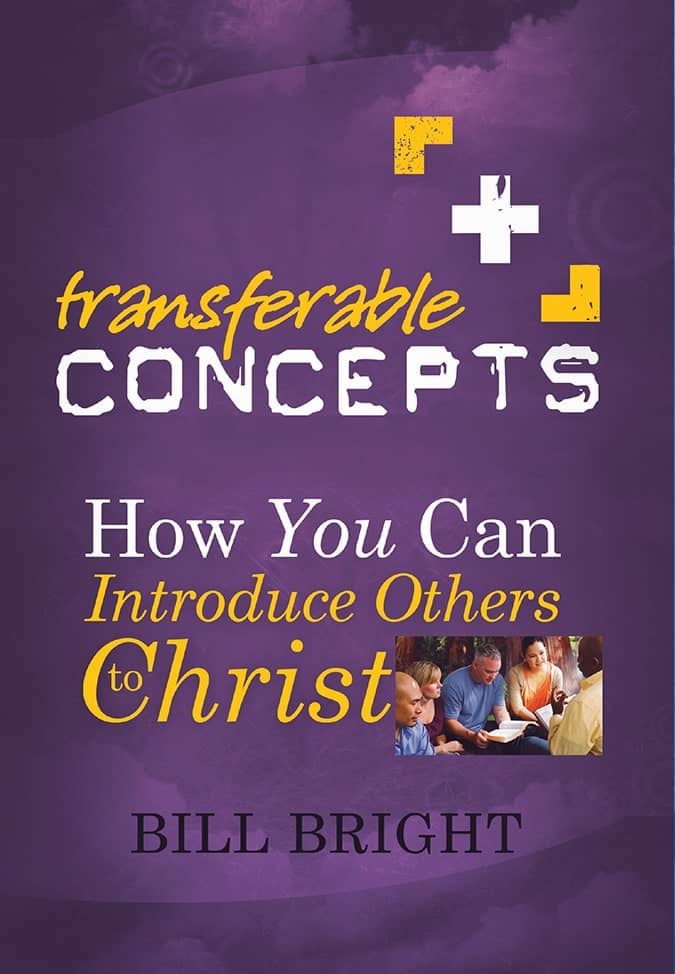The Art of Delegation

del-e-gate : “To entrust to another. To empower another person to act.”
Delegation is the act of empowering others to accomplish a task. Although it seems like one of the simplest things in the world to do it is one of the hardest to accomplish. The job of a leader is to see that all the work gets done – not to do it all themself.
Barriers To Delegation
- “It is much easier just to do it myself. What I can do in ten minutes, takes me fifteen minutes just to explain it.”
We are not thinking of the long-term benefits. - “I’m really not sure if others are competent enough to take on the responsibility. I’ve been burned too many times.”
We don’t have confidence in the abilities of others. - “I’m going to serve the ministry by taking care of all of the behind-the-scenes stuff by myself. That way they will have more time for evangelism and discipleship.”
We’re not living in reality. - “If you want something done right, do it yourself.”
What the Bible Says About Delegation
From the beginning of creation God began empowering others to accomplish a task. Psalm 8 says, “What is man that you are mindful of him...You made him ruler over the works of your hands; you put everything under his feet.” God entrusted his creation to sinful, mistake-prone people, and through us is going to accomplish His plan. God made the animals, but he delegated to man the job of naming them. He designed the ark, but it was Noah who was entrusted with the job of building it. If the God of the universe entrusted to us His creation, should we not be much quicker in empowering others to act?
Parables About Delegation
In Matthew 25:14-30 Jesus explains some principles of delegation.
- Delegation is a trust. “...he entrusted his property to them.”
- We take into account a person’s abilities when we delegate. “To one he gave five talents..., to another, two talents, and to another one talent, each according to his ability.”
- Delegation means accountability for the right results. “...the master... returned and settled accounts with them.”
- Faithfulness with a few things is a prerequisite for being in charge of many things. “You have been faithful with a few things; I will put you in charge of many things.”
- Faithfulness with things, precedes faithfulness with people. “Because you have been trustworthy in a very small matter (one mina), take charge of ten cities (people).”
In Luke 16:10-12 Jesus outlined an important principle of delegation. “Whoever can be trusted with very little can also be trusted with much...So if you have not been trustworthy in handling worldly wealth, who will trust you with true riches? And if you have not been trustworthy with someone else’s property, who will give you property of your own?” Faithfulness with things precedes faithfulness with people. People who are not faithful in carrying out small delegated responsibilities (“someone else’s property”) will rarely be faithful to a group of disciples (“true riches”).
Jesus and Delegation
Jesus lived by these principles throughout His earthly ministry. Early in his ministry he had his disciples baptizing others (John 4:2). He delegated the jobs of getting lunch, while He talked with the woman at the well. At first he told the disciple where to go and what to say in their missionary travels. The disciples fed the 5,000. It was His disciples who were given the responsibility to set up the place for the last supper. And before his ascension he entrusted to the twelve a job angels are not permitted to do – that of fulfilling the Great Commission.
The Apostle’s Ministry
In Acts 6:3, when the first deacons were selected, one qualification was the ability to assume delegated responsibilities (“whom we will put in charge of this task”).
The Jethro Principle
In Exodus 18 we read the account of what has become known as “The Jethro Principle”--not to be confused with the Ellie Mae Principle. Moses, as the leader of several hundreds of thousands of Israelites, had been serving “as judge for the people, and they stood around him from morning till evening.” Moses’ father-in-law, Jethro gave him this timely advise. “...Select capable men from all the people ... and appoint them as officials over thousands, hundreds, fifties and tens...That will make your load lighter, because they will share it with you.”
When to Delegate
We delegate when our responsibilities are greater than our capacities (governed by time, energy or abilities).
What Delegation Does For Others
Delegation says, “I believe in you – that you are capable of following through on this responsibility or task. You can do it!” Delegation says, “We are a part of a team. We’re all counting on you to do your part.” Delegation helps others “own” the ministry. Delegation develops new abilities and a sense of contribution to the movement. To delegate to others expands the level of competence and confidence in another. Delegation helps you access the capabilities of those in your ministry.
Two of the deacons who got their start waiting tables in Acts 6 went on to enter into God’s history book – Phillip the great evangelist and Stephen, the first martyr. Because they were faithful in a “very little thing” God gave them opportunity to be faithful in much. Through faithfully carrying out a delegated responsibility your students will experience the joy that comes from having God use them.
As a leader, you have no doubt found that if you have one main task you are trusting God for and it turns out well you have a real sense that God has used you. However, if you take on all the responsibilities yourself, they become more of a burden than a means of joy. You have also robbed someone of the privilege of seeing God use them.
Educator Howard Hendricks once noted, “Any time you do for someone else what they are capable of doing for themselves, you are helping to create an emotional cripple.” God wants everyone serving. Ephesians 4:11-13 and 1 Peter 4:10,11 make that point clear. Leaders are, in part, developed as we entrust them with greater levels of responsibility and decision making.
Three Types of Leaders
Keith Young has noted that in ministry there are basically three types of leaders –
- Potential leaders
- Progressing leaders
- Proven leaders
Potential leaders are those students who are young in your ministry. They show potential but you haven’t been around them enough to observe their strengths and weaknesses. To these you may delegate temporal things like handing out flyers, arranging rides to the fall conference, making posters, setting up chairs at the weekly meeting. Doing any of these things is an impetus to commitment. “Involvement breeds commitment.” “Leadership development is leadership responsibility.” Use these little things to develop young leaders and observe their faithfulness.
Progressing leaders are those who have responded to what you have entrusted to them and have been faithful in accomplishing what needed to be done, be it physical arrangements for the weekly meeting or getting surveys printed on time. They are ready for greater responsibilities.
Proven leaders are those who are the spiritual leaders of your movement. These people form your leadership team. They pray and plan together. Because they have been progressively faithful in little, so you can entrust them with much.
Three Types of Delegation
Oftentimes we want to delegate responsibilities but because we have gotten “burned” in the past, we are hesitant to release an important job to someone else. That being the case, let’s develop a new model of delegation. Depending on the maturity of the person involved and their skill level, we will want either to direct him, coach him, or delegate to him.
- Directing means to give a specific job description or checklist of what needs to be done along with intermittent deadlines to ensure his success.
- Coaching means that you allow him/her to design the plan and procedure. You coach him along and advise him until he succeeds.
- Delegation means that you just turn it over to him/her. Because his commitment level and skill level are both high, you can trust that he will do it right and on time. You have seen his proven faithfulness over time.
In his book Seven Habits of Highly Effective People, Steven Covey writes:
With immature people, you specify fewer desired results and more guidelines, identify more resources, conduct more frequent accountability interviews, and apply more immediate consequences. With more mature people, you have more challenging desired results, fewer guidelines, less frequent accountability, and less measurable but more discernable criteria.
Here’s an example. You need the rides arranged for a retreat. The goal is that everyone has a ride and the drivers are compensated for gas. You don’t want too many or, worse yet, too few drivers. How would you “delegate” this responsibility to a new Freshman? To a Freshman who had arranged rides several times for his youth group?
Visibility and Risk
If you want to develop your Potential Leaders, you may want to begin with “low visibility, low risk” responsibilities. If they fail, they can learn from their mistakes but the consequences will not be fatal for the ministry. As they grow they can be entrusted with more. With your Proven Leaders – those who demonstrate maturity, faithfulness and skill – you can entrust “high visibility, high risk” responsibilities.
The Goal of Delegation
The goal of delegation is:
- That the person succeeds in accomplishing the task he has been given. Failure is seldom a good motivator to take on new responsibilities.
- That the person develops in competence, confidence and faithfulness.
These being the goals, then you need to do what you can in order to see that they happen. A potential leader (low or untested levels of skill and commitment) will need structured guidelines for success. A progressing leader (high skill but low commitment or visa versa) will need coaching to succeed. With proven leaders (high skills and high commitment), you can turn them loose to accomplish what needs to be done. This is the only case in which you truly delegate with hands off.
How to Delegate
- Decide what needs to be done.
- Select the best person for the job. Let him/her know you believe he/she can do it. Trust is one of the highest forms of motivation.
- Clarify and agree upon the desired result and deadline. Major on what not how – results not methods.
- Define guidelines and potential pitfalls. Let him/ her learn from your mistakes and the mistakes of others.
- Establish level of authority, accountability, and method of evaluation.
- Identify resources – financial, human, technical, and organizational resources that he/she can draw from.
- Establish consequences.



















